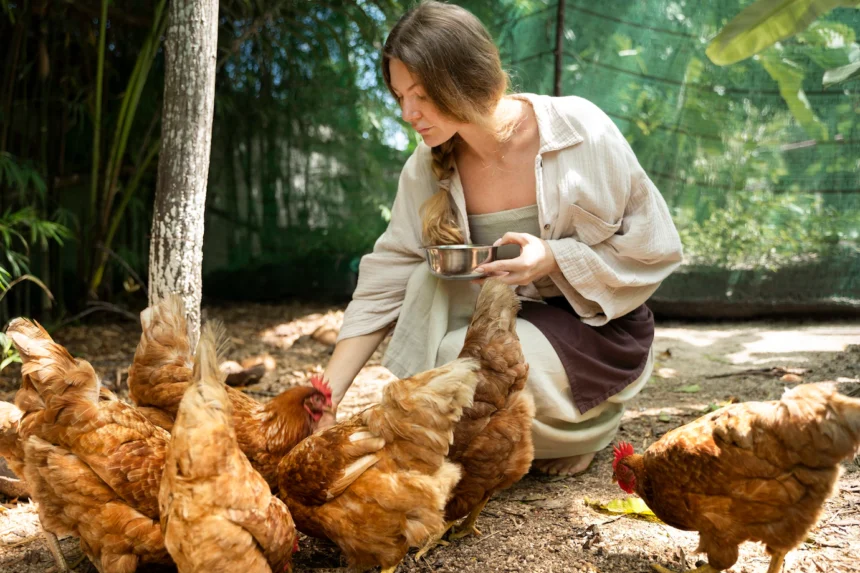Free-range poultry farming, also known as extensive or pasture-based farming, offers several benefits in the context of South Africa. Here are some of the advantages of free-range poultry farming:
- Animal Welfare: Free-range farming provides a more humane environment for poultry compared to conventional intensive systems. It allows chickens to exhibit natural behaviors, such as foraging, dust bathing, and roaming freely outdoors. This promotes their overall well-being and reduces stress-related issues.
- Improved Product Quality: Free-range poultry farming often results in higher-quality products. The chickens have access to a varied diet, including insects, grass, and seeds, which can enhance the flavor and nutritional profile of their meat and eggs. The natural exercise and exposure to sunlight also contribute to healthier birds.
- Environmental Sustainability: Free-range farming practices are generally more environmentally sustainable compared to intensive methods. Poultry raised in free-range systems have lower stocking densities, reducing the risk of water and soil pollution. Their natural foraging behavior helps control pests and weed growth without the need for chemical intervention.
- Healthier Food Options: Consumers are increasingly concerned about the source and quality of their food. Free-range poultry farming offers an alternative to conventionally raised poultry, providing consumers with healthier food options that are free from antibiotics, hormones, and other additives often associated with intensive farming.
- Economic Opportunities: Free-range poultry farming can create economic opportunities, especially for small-scale farmers. It requires less capital investment compared to large-scale intensive operations, allowing farmers with limited resources to enter the market. Additionally, the growing demand for free-range products can provide farmers with premium pricing and market differentiation.
- Conservation of Heritage Breeds: Free-range farming can contribute to the conservation of indigenous or heritage poultry breeds. These breeds often have specific adaptations to local conditions and are better suited for free-range systems. By raising and promoting these breeds, farmers can help preserve genetic diversity and cultural heritage.
- Community Engagement: Free-range farming can foster community engagement and connection. Farmers can offer educational programs, farm visits, and other initiatives to raise awareness about sustainable farming practices and the benefits of free-range systems. This engagement helps build a closer relationship between producers and consumers, promoting local and sustainable food systems.
It is important to note that while free-range farming offers various benefits, it also poses unique challenges such as predator management, disease control, and land requirements. However, with proper planning, management, and support, these challenges can be addressed to create a successful and sustainable free-range poultry industry in South Africa.
Join 'Farmers Mag' WhatsApp Channel
Get the latest Farming news and tips delivered straight to your WhatsApp
CLICK HERE TO JOIN






